What is a Board Game?
Appeared in the past, and now Board Games are becoming more and more popular, especially among young people because of the fun, high entertainment and the ability to connect players together. Surely each of us has ever played a Board Game. So what is a Board Game? What types of board games are there? Let's find out through the following article.
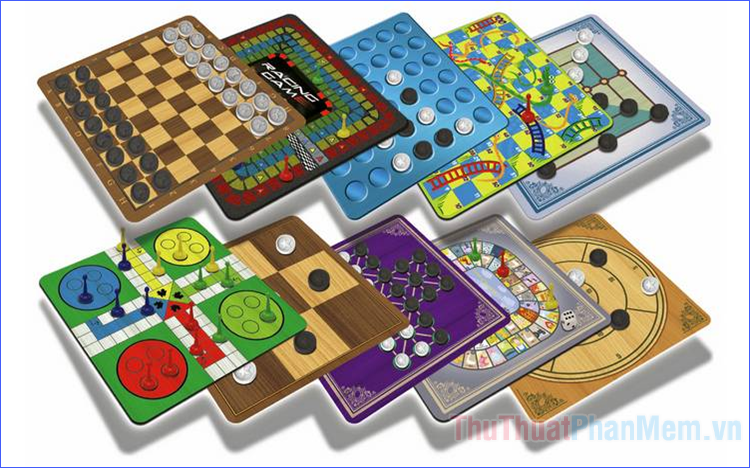
What is a Board Game?
Board Game is a board game that consists of "pieces" that are moved or placed on a surface or "board" and need to follow a set of rules to play. Some games are based on pure strategy, many of which contain a risk element; and some completely depend on probability, no skill factor.
Board Games often have a goal that the player must aim for. The early Board Games often represented a battle between two armies, and most modern Board Games still relied on defeating opponents in opposition, reaching victory or accumulating points.
There are many types of Board Games, they may not carry any theme like Checkers (chess), or carry a specific theme like Cluedo . The complexity in the rules of the game also varies, from very simple levels like Gomoku (the Caro flag), to rules that seem to describe a whole game universe, typically Dungeons & Dragons - although most all later games are role-playing, where "Board" (board, or table) is secondary to the game, which serves to visualize the game script.
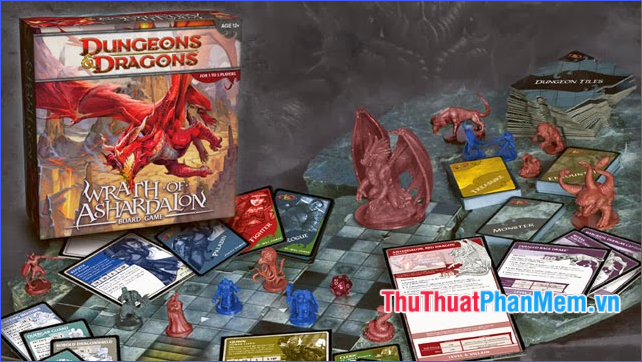
Dungeons & Dragons
The time required to learn to play or master a game varies greatly depending on what the game is, but does not necessarily correlate with the number or complexity of the rules. For example, games like chess or Go have a relatively simple set of rules, but they have a great tactical depth.
Tactical, luck and "diplomatic" elements
Some games, such as chess, depend entirely on the skill of the player, while many other games (usually for children) like Candy Land or seahorse do not require the player to decide and completely determined by luck.
Many games require a certain level of both skill and luck. A player can be hampered by the bad luck in Backgammon (the flag of fox), Monopoly (the flag of billionaire), or Risk ; but over many plays, skilled people will win more often; meanwhile the element of luck can make it more interesting while playing.
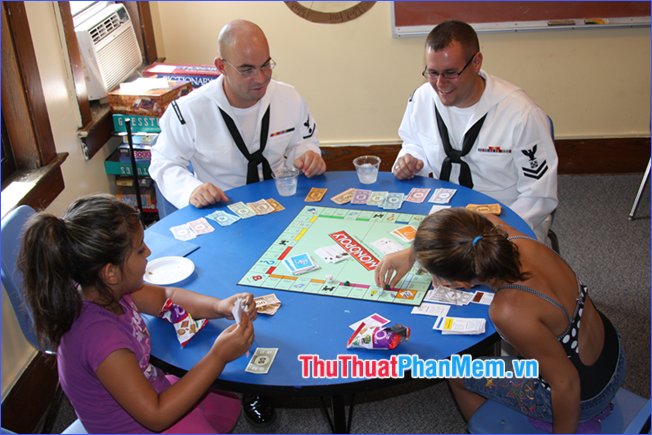
An overseas version of the billionaire flag
The element of luck can be put into a game by many different methods. Many old Board Games use dice, which can determine everything, from how many steps a player's "character" moves (as in the billionaire chess) to how their forces fight (like in Risk ), or resources that the player has earned (as in Catan ). Another game like Sorry! Use a special deck of cards that when shuffled will generate randomness. Or Scrabble (a type of word game) does the same thing with randomly chosen letters.
Another important element of some Board Games is "diplomacy", that is, players who make a certain transaction with each other. Negotiations are usually only available in games with three or more players. For example, an important aspect of Catan is to convince players to trade with you rather than with competitors. In Risk , two or more players can cooperate against others. Diplomacy also includes persuading other players that someone has an advantage and should therefore cooperate against it.
In games where all information is clear, such as chess, each player has complete information about the state of the game; But in many other games, such as Tigris and Euphrates or Stratego , some information is hidden from the player. This makes it harder to find the best way to move, and may involve estimating the probabilities of your opponents.
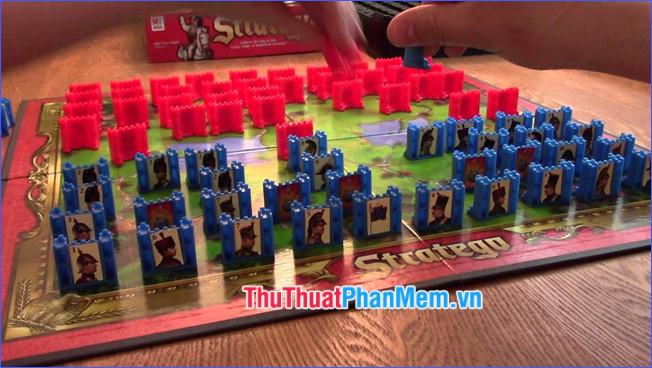
Stratego
The development of the Board Game today
The period from the late 1990s onwards has witnessed a significant growth in the scope and market of Board Games. Among the reasons, the Internet is the most important factor, because it helps people easily learn about the games and find opponents to play. Around the year 2000, the Board Game game industry began to grow significantly, the number of Board Game production companies and new games sold to audiences around the world increased. In the 2010s, a number of publications suggested that the Board Game was entering a new "Golden Era". Board Game locations are also becoming more and more popular, for example, Board Game cafes are listed as appearing a lot in China (and in Vietnam you can also easily search in cities. big).

A Board Game cafe
Many Board Games have now been released in the form of video games, which may include computer-controlled opponents. Some other Board Games can be played online against computers and / or real players. Some websites also allow real-time play and instantly show the opponent's moves. Publications can also entertain you with the Board Game through the games printed on it. Some games also use external media such as cassettes or DVDs to buffer the game.
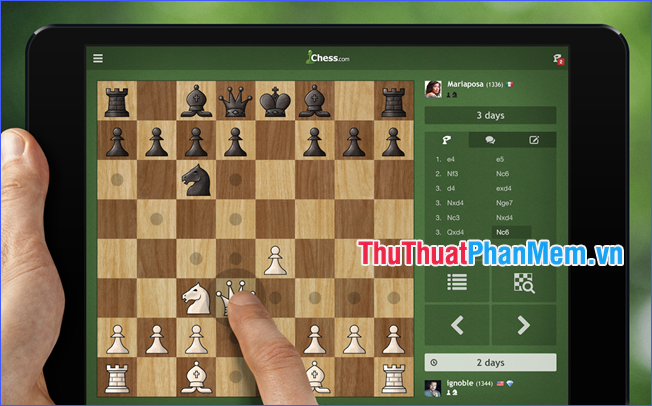
Chess game on mobile devices
Through the introduction above, you already understand what a Board Game is and some of the typical Board Games, right? Unlike other blockbuster games, Board Game is light-hearted but very effective in eliminating the stresses from life, or deepening the affection of family and friends. Hope the information just shared above will help you, and wish you have lots of fun moments when playing Board Game with your loved ones around!